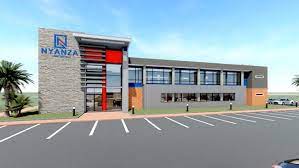Nyanza Plant targets to construct a project for 80 000 t/y of titanium dioxide pigment. The project produces around half of Africa’s capacity and just over 1% in terms of the global market. The R14-billion Nyanza Light Metals project aims to increase Africa’s abundant raw materials up the value curve, Nyanza CEO Donovan Chimhandamba emphasized.
Nyanza plant is a large project and a mini town under construction that is anticipated to be completed in 36 months. Additionally, a self-generation of 12 MW of solar power supported by battery storage is planned to be installed. This will be achieved from cogenerated electricity from the titanium dioxide pigment plant itself once it is in operation.
Also Read: Emerging Technologies Will Help To Meet Construction’s Rising Demand
Significance of the Nyanza plant to the development of South Africa and the whole of Africa
Currently, the project is run by a project development steering committee. Already commissioned is an R200-million product testing and development Centre. Importantly, the Centre will provide 700 t/y of titanium dioxide pigment samples to offtake partners.
Additionally, offtake agreements for more than 60% of the 80 000 t/y capacity have already been signed. During the construction of the main plant, the testing and development section will be used to train the 850 employees.
The global industry is at about seven-million tons in terms of demand and supply. Therefore, Africa remains a small consumer based on this perspective. With Nyanza constructing a plant for 80 000 t/y, that’s probably around about 50% of Africa’s capacity. While it’s a phenomenal project, it’s just over 1% in terms of the global market.
In terms of rail and logistics, the Nyanza plant is located near a port. Additionally, the project will attract the development of the Richards Bay Industrial Development Zone. Noteworthy, the Department of Trade, Industry and Competition is speeding up connecting the zone to the mainline rail networks.

